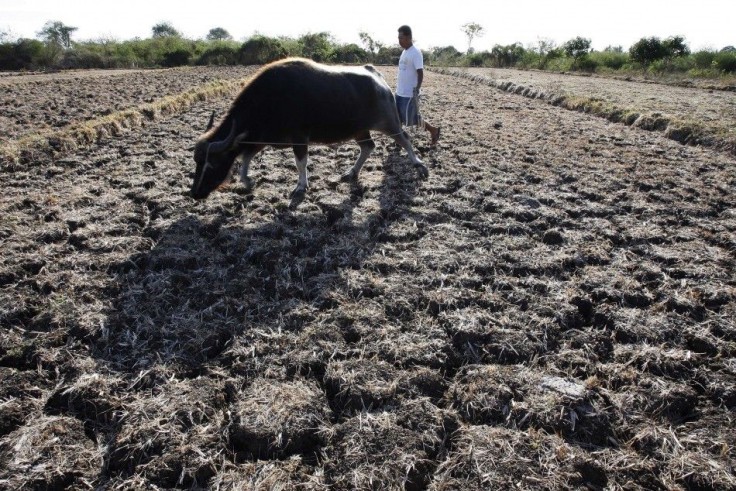Study Links Heat from El Niño to Civil Wars

When the weather heats up, people get more uncomfortable and perhaps a little testy. However, until now, no one has ever accused heat of causing war.
A new study from the Earth Institute at Columbia University has done just that. It links hot weather from El Niño to a fifth of all worldwide conflicts. While it is well known heat has caused downfalls of various civilizations, this is the first study to say heat has caused a percent of civil wars and strife.
The most important thing is that this looks at modern times, and it's done on a global scale, Solomon M. Hsiang, the study's lead author and a graduate of the Earth Institute, said in a statement. We can speculate that a long-ago Egyptian dynasty was overthrown during a drought.
That's a specific time and place, that may be very different from today, so people might say, 'OK, we're immune to that now,' he added. This study shows a systematic pattern of global climate affecting conflict, and shows it right now.
El Niño-Southern Oscillation (ENSO) is a weather cycle that happens every three to seven years. During it, there is a periodic warming and cooling of the tropical Pacific Ocean. This cooling impacts weather across various regions of the world including Africa, the Mideast, India, southeast Asia, Australia, and the Americas.
The El Niño part of ENSO can bring scorching heat and multi-year droughts. According to the study, the El Niño part of ENSO from 1950 to 2004 correlated with break out of 235 civil conflicts in 175 countries that killed more than 25 people in a given year. Over half of these conflicts had 1,000 battle-related deaths. During the La Niña or colder part, the chance of civil wars breaking out was only three percent.
The study's authors want to be clear: hot weather isn't the only factor that starts civil wars.
Rather, this is compelling evidence that it has a measurable influence on how much people fight overall. It is not the only factor--you have to consider politics, economics, all kinds of other things, Mark Cane, climate scientist at Columbia's Lamont-Doherty Earth Observatory and co-author of the paper, said in a statement.
The authors say climate can cause a knockout punch when you consider numerous other factors like social inequality, poverty and underlying tension. For instance, if a crop fails because of heat, they say, it could be the last straw for someone.
Nowhere is this more apparent than in poorer countries the authors say. Australia, which is a wealthy country under ENSO, has never seen a civil war. On the other side of the coin, Peru is also controlled by ENSO and had civil war during an El Niño year (1982). There were also similar incidents in the Philippines and Uganda (1972); Angola, Haiti and Myanmar (1991); and Congo, Eritrea, Indonesia and Rwanda (1997).
Not everyone is convinced, though.
The study fails to improve on our understanding of the causes of armed conflicts, as it makes no attempt to explain the reported association between ENSO cycles and conflict risk, Halvard Buhaug, a political scientist with the Peace Research Institute Oslo in Norway who studies the issue, said in as statement. Correlation without explanation can only lead to speculation.
The research paper was published in a recent issue of Nature.
Follow Gabriel Perna on Twitter at @GabrielSPerna
© Copyright IBTimes 2024. All rights reserved.





















